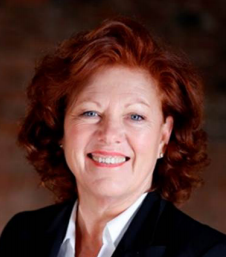Ginger Graham
Ludeman Center Jul 1, 2017 You’ve had a fascinating career. Walk us through it.
You’ve had a fascinating career. Walk us through it.I’ve had the opportunity to do lots of interesting things. I was raised on a farm in Arkansas and graduated from the University of Arkansas with a degree in Agriculture. My first job out of college was with a large agriculture chemical company where I started in sales. After five years, I went to business school, which opened doors for me to work in investment banking in New York City. From there I transitioned to pharmaceuticals, and then moved to California to run a medical device company. After almost 10 years in that field, I had the opportunity to run a biotech company in San Diego to help them launch two first-in-class medicines for people with diabetes. After leaving the corporate world, I joined the faculty at Harvard Business School and taught classes in entrepreneurship. It was all a lot of fun! And still is. I love learning and hope there are many more things to learn and do.
How did you learn about the Ludeman Center, and why is its mission important to you?
Dr. Joann Lindenfeld and Dr. Judy Regensteiner both approached me over a decade ago, after Joann heard me speak at a cardiology conference. She and Judy approached me about their big idea for the Ludeman Center and asked if I would be willing to help them. They explained their vision to combine research, mentoring, and community education into one mission focused on increasing our understanding of sex differences in health. It’s been one long adventure since then. I’ve spent most of my career in pursuit of improving human health. Advances in technology have provided new tools to combat many human diseases, but we have an enormous dearth of information about how women respond to these new technologies and how to improve women’s health. For years, I’ve been working to increase industry’s participation in improving women’s health and working to get women into the system for adequate evaluation and treatment. I’ve also tried to promote research on sex differences by including women in clinical trials and focusing research dollars on women’s health. The Ludeman Center is making a difference in this area and I want to see this work grow across the globe. It’s extremely important to me.